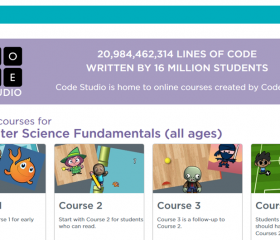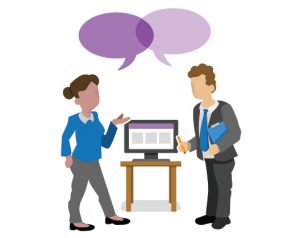ICT Overview
At English Martyrs’ School we believe that Computing and the use of ICT is central to the education of all children. We aim to give each pupil the opportunity to apply and develop their technological understanding and skills across a wide range of situations and tasks.
Pupils are encouraged to develop a confident and safe approach to Computing and the use of ICT, with the understanding of the capabilities and flexibility of their resources.
With the knowledge that Computing and ICT will undoubtedly continue to form a major part in the children’s life at home, in further education and places of work, we ensure the Computing and ICT experiences and abilities that the children are equipped with at English Martyrs’ School, are effective and transferrable life skills.
- CURRICULUM MAP 2023-24 Computing
- Computing-programmes-of-study-for-Key-stage-1-and-2
- Computing-in-Early-Years
Computing at English Martyrs
At English Martyrs we provide a challenging and stimulating experience for all of our learners.
The computing curriculum has three main areas:
Information Technology
To use technology purposefully to create, organise, store, manipulate and retrieve digital content.
Digital Literacy
To be able to use, and express themselves and develop their ideas through, information and communication technology.
Computer Science
Pupils are taught the principles of information and computation, how digital systems work and how to put this knowledge to use through programming.
Keeping safe online
E-safety is important to create and maintain a safe online and ICT environment.
Computers and the internet play an important role in the 21st century. We prepare children to use these technologies so that they can gain the necessary skills to access life-long learning.
To help our parents better understand these areas of concern, we have created this handy download for you. Please take the time to download and read this document. If you have any questions, please feel free to come in and talk to us.
Useful Links
- BBC Web wise: http://www.bbc.co.uk/webwise/a-z/
- Free advice on being safe online: https://www.getsafeonline.org/
- Safe search engine for children: http://primaryschoolict.com/
Microsoft Teams
Staff and pupils use Microsoft Teams as their main email account. The pupils account allows them to log in, interact with classmates in a familiar environment, collaborate with other students on projects and homework, easily upload assignments and work in one place and it is simple and easy to use and students can manage their time.
 Coding
Coding
Coding – Each class have experienced coding and learning the different aspects to what coding involves in their ICT lessons Each child has a coding log in and password. Students will create computer programs that will help them learn to collaborate with others, develop problem-solving skills, and persist through difficult tasks.
Enjoy coding at home.
Deep Dive into Computing
 Ofsted have recently implemented their new Education Inspection Framework (EIF) which replaces the Common Inspection Framework (CIF). This new framework has come into existence as there were concerns that the curriculum was less favoured over performance measures. The new framework has had judgement categories revised. The biggest one that will be of possibly most interest to subject leaders is ‘Quality of Education’.
Ofsted have recently implemented their new Education Inspection Framework (EIF) which replaces the Common Inspection Framework (CIF). This new framework has come into existence as there were concerns that the curriculum was less favoured over performance measures. The new framework has had judgement categories revised. The biggest one that will be of possibly most interest to subject leaders is ‘Quality of Education’.
The ‘Quality of Education’ category is split into: Intent, implementation and impact. Ofsted will perform a ‘Deep dive’ to establish the ‘Quality of Education’. Deep dives are always carried out in reading, one or more foundation subjects and often maths. It’s important to be very clear about your understanding
of what is meant by Intent, Implementation and Impact.
